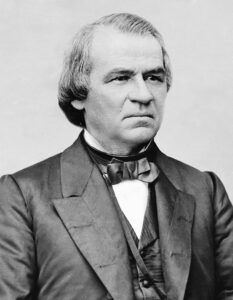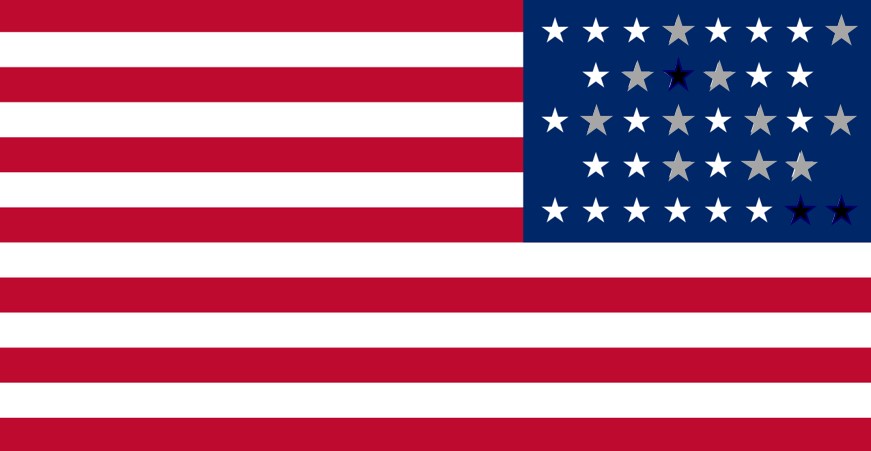War Democrat (constitutionalist) de facto President Andrew Johnson (a Citizen of the confederate of Tennessee) signs the Army Appropriations Act of 1866, reducing the Army of the united States to an authorized strength of 80,000.
[added 4/24/2022]
Congressional (radical) Reconstruction continues: War Democrat (constitutionalist) de facto President Andrew Johnson (a Citizen of the confederate State of Tennessee)—without a constitutional amendment—signs the Internal Revenue Act of 1866, further exacerbating the southern economic depression, by raising the excise tax on cotton another 16% to three-cents per pound, while the price of cotton has fallen to 39 cents per pound due to the continued depression in cotton prices. This tax disparately impacts upon cotton producing States.
[restored 4/24/2022]
Subsequent Events:
Authority:
Article I, Section 8 [Clause 12]
ccc-2point0.com/constitution-for-the-united-states
“Law of the Jungle”
ccc-2point0.com/preface
References:
Army Appropriations Act of 1866, 14 Public Stattues at Large 90 (1866).
Internal Revenue Act of 1866, 14 Public Statutes at Large 98 (1866).
Alan Bock, War and Peace and Liberty,” Orange County (California) Register, 8 September 2002, Commentary:1, 5.
Hammond, Matthew B. The Cotton Industry: An Essay in American Economic History; Part I, The Cotton Culture and the Cotton Culture Trade, London: Swan Sonnenschen & Co., 1897; New York and London: Johnson Reprint Corporation, 1966), 358 (table 2).
James M McPherson, Ordeal by Fire: The Civil War and Reconstruction, second edition, (New York: McGraw-Hill, 1992), 494.


